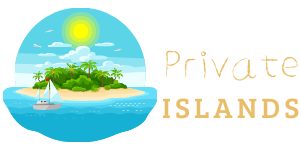Living on a private island sounds like the ultimate daydream. Imagine stepping off a seaplane onto your own beach and being greeted by white-gloved butlers who hand you a glass of Champagne. It’s not only possible, but a growing reality for some wealthy individuals. In fact, real estate and travel industry experts say that private islands are more popular than ever as people look to escape the hectic pace of modern life.
Buying and renting a private island isn’t as expensive as it seems. In fact, it’s much cheaper than a city apartment. And if you’re willing to be patient and put in the time, it’s also relatively easy to find an island in your price range. But there are some things you need to know before making the leap to a secluded island.
One of the biggest challenges of private island living is the lack of quick and easy access to food, water and other essential supplies. And even though you’ll likely have a staff to help you stock up, there’s still the chance that something might go wrong during a crisis. If you live on a private island, it’s important to have the right insurance and emergency planning in place.
Another challenge is the lack of a nearby hospital and doctor. While many private islands have their own doctor, it’s often a long drive to reach the nearest hospital. And that’s not ideal when something happens, especially if you have young children. Luckily, there are some medical companies that provide mobile ambulances and doctors to visit island homes.
But the cost of this service can add up quickly. And if you’re a permanent resident, you’ll need to factor this in when you’re budgeting for your island.
Besides that, there are other costs you’ll need to keep in mind. You’ll need to think about everything from the cost of running a generator to the cost of having solar panels installed on your home. It’s also a good idea to consider the impact that your island will have on the environment. If you’re going to be the sole protector of a small island, it’s your responsibility to ensure that it isn’t overrun by pollution and other threats.
Although some individuals enjoy the solitude of living on a private island, others find it a bit stressful to be so isolated. Typically, it’s the older individuals who find this lifestyle most challenging, since younger generations are more used to living in communities where they can easily interact with their neighbors and friends.
